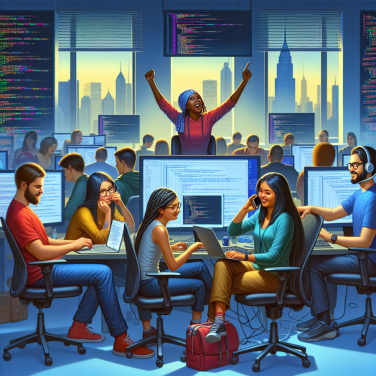The Role of Recreational Games in Personal Development and Community Building
Recreational games have been an integral part of human society for thousands of years. These games, which can range from traditional board games to progressive interactive video games, have substantially shaken off the tag as mere entertainment utilities. They are now recognized as valuable tools for personal development and community building.
When we consider personal development, several criteria come into play. It involves cognitive advancement, emotional growth, social skill development, and physical well-being. Recreational games are an excellent tool in fueling this development process.
Cognitive enhancement is one critical area where recreational games have proved their worth. Games like chess, Sudoku, or Scrabble can significantly improve memory function, strategic thinking, and problem-solving skills. Video games like Minecraft and SimCity can encourage creativity and innovation. Recreational games, hence, do not simply provide amusement but a platform that enhances mental agility and intellectual capacity.
Emotional growth, too, can be significantly impacted by recreational games. Games wherein players face various challenges and levels of competition tend to impart essential lessons in grit, resilience, and persistence. Furthermore, they help improve one’s ability to handle stress, disappointment, and promote the ability to showcase fortitude in times of adversity.
Another aspect of personal development is social skills. Multiplayer games promote teamwork, collaboration, and communication among players. They also provide a platform to learn and practice leadership and negotiation skills. Games set in diverse cultures can also help improve cross-cultural communication and appreciation.
Beyond the active player's engagement, the role of recreational games extends to the community. They have proven to be formidable catalysts for community development and engagement across various sectors.
Online gaming communities are a testament to this trend. Gamers from different parts of the world unite to form a community, transcending geographical and social barriers. These communities provide a platform for members to interact, collaborate, and foster camaraderie based on shared interests.
Recreational games can also bridge generational gaps in the community. The popularity of Pokémon Go is a testimony to this fact, as it brought together a diverse demographic of players. Whether it’s a community board game night or an inter-generational video game tournament, recreational games facilitate interaction and bonding between different age groups.
Furthermore, community-wide games and competitions serve as a cultural and social glue. Such activities give community members a sense of belongingness and identity and can be a way to keep local traditions alive.
Read also:
Mastering the Dual Challenge: Training for Aquathlon Success
Decoding the Fun Factor: Types and Benefits of Recreational Games
Recreational games are designed to provide entertainment and fun while allowing participants to gain varying degrees of development- physically, mentally, and socially. These games run the gamut from traditional outdoor sports to video games, board games, and puzzle games. By engaging in these activities, participants can harness a broad spectrum of benefits, contributing to their overall well-being.
One dimension of recreational games that often gets overlooked is their significant contribution to the development and maintenance of physical fitness. Games such as soccer, basketball, and tennis require considerable physical exertion, ultimately promoting cardiovascular health, strength, flexibility, and endurance. Children and adults who regularly partake in these physical activities generally have a lower risk of obesity, heart disease, and other lifestyle-related illnesses. Moreover, these games can also enhance fine and gross motor skills, hand-eye coordination, and speed.
In addition to physical benefits, recreational games also foster considerable mental stimulation. Games that involve strategy, such as chess and certain video games, encourage critical thinking, problem-solving, and cognitive flexibility. Through these forms of play, players enhance their attention span, memory, and decision-making skills. They also provide a platform for creativity and imaginative thinking.
On the other hand, recreational games have a significant social component. Participating in team sports or multiplayer games demands cooperation, collaboration, communication, and negotiation - vital skills for successful interpersonal relationships throughout life. These activities provide opportunities to develop a sense of belonging, build friendships, and cultivate a spirit of competition.
Beyond the physical, mental, and social benefits, recreational games also carry therapeutic value. They can be enormously stress-relieving, serving as an effective outlet for releasing tension and pent-up energy. Recreational games can indeed be transformative, harnessing the power of play to promote joy, relaxation, and a positive outlook on life.
From a broader societal perspective, recreational games provide a platform for cultural expression. They can be a reflection of regional traditions, historical events, or societal rituals. Games like the Mexican 'loteria' or the Chinese 'mahjong' are deeply rooted within these cultures, strengthening communal bonds while simultaneously preserving and passing on cultural heritage.
Recreational games are truly multifaceted, bursting with fun while offering numerous developmental benefits. Their role in promoting physical health, cognitive advancement, and social interaction, along with their cultural significance, makes them a vital aspect of human life.




